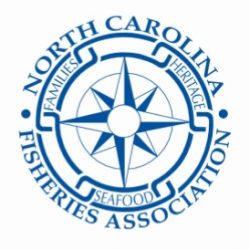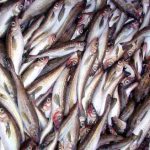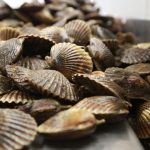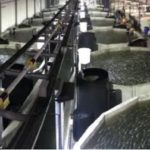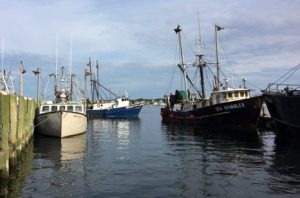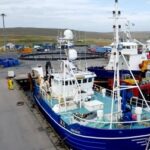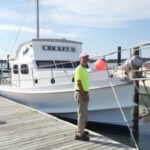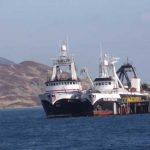Next week at their November 17-19 quarterly business meeting the NC Marine Fisheries Commission (MFC) will hear public comment and vote on preferred management options for Amendment 2 to the Shrimp Fishery Management Plan (FMP). (https://deq.nc.gov/media/
North Carolina has the second largest estuary in the U.S. with over 2.1 million acres or 3,281 square miles of estuarine (internal salt) waters. Currently approximately 1 million acres (47%) of our estuary is permanently closed to shrimp trawling and an additional 200,000 + acres are managed with seasonal closures, with a combined total of 1,207,463 acres or 1,886 square miles permanently or seasonally closed to shrimp trawling. These area closures, many of which were implemented 50+ years ago, were intended to protect areas identified as critical estuarine habitat and create safe havens or ” nursery areas ” for juvenile finfish and other marine species.
After decades of restrictions and monitoring, the Division of Marine Fisheries (DMF) acknowledges that they can’t determine whether closing over half of the second largest estuary in the country, to shrimp trawling, has resulted in increases of abundance for any particular species of finfish or the improvement \ restoration of critical fish habitats within the closed areas. They also acknowledge that the potential benefits of additional area closures are unquantifiable as are the potential negative impacts, if any, to overall fish abundance or habitat from shrimp trawling under the current management strategy.
Despite the high degree of uncertainty surrounding the potential impacts of trawling or the potential benefits of area closures, on November 1, the DMF made public their recommendations, to the MFC, for additional area closures.
The areas identified for closure to shrimp trawling, by the DMF, are vitally important fishing grounds for recreational shrimpers and commercial fishermen who operate smaller vessels who depend on these waters to feed their families and yours. Again, the potential benefits from these recommendations are unquantifiable but the devastating negative impacts to recreational shrimpers, fishing families, coastal communities, and seafood consumers are undeniable!
While the DMF’s recommendations seem extreme given the undeniable uncertainty, please don’t focus solely on these recommendations, as noted above the Commission can pick from a wide range of options, some more extreme than those recommended by DMF. Instead, oppose all unquantifiable
restrictions and demand fair and equitable treatment for all stakeholders commercial, recreational, and consumer.
Effort in North Carolina’s shrimp trawl fishery has declined dramatically in recent years, yet it has remained one of the top two fisheries by value in the state, contributing nearly $100 million and thousands of jobs to the state’s economy annually. Shrimp remains the #1 seafood preferred by American consumers and studies have shown that consumers prefer domestically produced shrimp, like those harvested from NC waters, over imported products. Even more important is the fact that food security equals national security as many Americans have recently realized due to the impacts the global pandemic has had on food supplies. Simply put, a nation that cannot feed its citizens cannot protect them!
At this time it’s clear the negative impacts of further restrictions to shrimp trawling in NC far outweigh any quantifiable benefits , therefore the North Carolina Fisheries Association strongly urges all commercial fishermen , recreational shrimpers , and seafood consumers to join us in opposition to any further restrictions to shrimp trawling in NC waters until the state can quantify both the impacts of trawling , if any , under the current management strategy and the potential benefits , again if any , of further restrictions.
It’s not unreasonable for an industry to demand to be scientifically identified as a problem before being labeled and managed as one! Is it?
Public comment will be heard at The Islander Hotel & Resort
102 Islander Dr, Emerald Isle on Wednesday Nov. 17, at 6pm and the discussion and vote on preferred management measures will occur on Thursday Nov. 18. Please plan to attend on both days and let your opposition to further restrictions be known.
Glenn Skinner
Executive Director-
North Carolina Fisheries Association, Inc.






